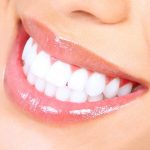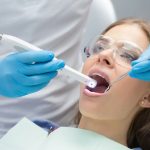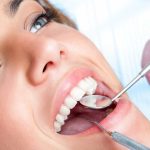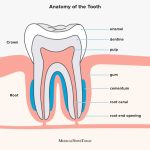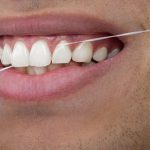Unusual Sensations: Why My Teeth Feel Weird When I Bite Down

There are a myriad of sensations that our body experiences on a daily basis, some of which are quite unusual and unexpected. One of these unusual sensations is when our teeth feel weird or uncomfortable when we bite down. This sensation can range from mild discomfort to sharp pain, and can be caused by a variety of factors. Understanding why this happens and how to prevent it can help us maintain good oral health and avoid discomfort. The sensation of our teeth feeling weird or uncomfortable when we bite down can be caused by a number of different factors. One of the most common causes is tooth decay or damage, which can cause sensitivity or pain when pressure is applied to the tooth. Other possible causes include gum disease, tooth grinding or clenching, and even sinus problems. It’s important to identify the underlying cause of this sensation in order to properly address the issue and prevent further discomfort.
Unusual sensations in teeth can be a cause of concern for many people. These sensations can range from mild discomfort to intense pain. Some people may experience a sharp shooting pain when they bite down, while others may feel a dull ache or sensitivity to hot or cold temperatures. These sensations can be caused by a number of factors, including tooth decay, gum disease, cracked or chipped teeth, or even grinding or clenching of the teeth. Whatever the cause, it is important to seek the advice of a dental professional to determine the best course of treatment. Ignoring these sensations could lead to further damage or more serious dental issues down the road.
Understanding the causes of unusual sensations in our bodies is paramount to our health and well-being. In the case of unusual sensations in our teeth, such as feeling weird when biting down, it could be a sign of a variety of dental issues, including tooth decay, cracked or damaged teeth, or even bruxism, a condition where a person grinds or clenches their teeth. Without understanding the underlying cause, the issue can worsen and lead to more serious dental problems. Seeking professional dental care and understanding the causes of unusual tooth sensations can help prevent further damage and promote overall oral health.
Teeth Sensitivity

Teeth sensitivity is a common dental problem that affects millions of people worldwide. It is characterized by sharp and sudden pain in the teeth when exposed to cold, hot, sweet, or sour food and drinks, or even when brushing or flossing. This discomfort is caused by the exposure of the tooth’s inner layer, called dentin, which contains tiny tubules that are connected to the tooth’s nerve endings. When these tubules are exposed, the nerve endings become irritated, leading to pain and sensitivity. Various factors can lead to teeth sensitivity, including gum recession, enamel erosion, tooth decay, and teeth grinding. To alleviate teeth sensitivity, it is crucial to maintain good oral hygiene practices, such as brushing twice a day with fluoride toothpaste and flossing daily. It is also essential to avoid acidic and sugary foods and drinks and to use a soft-bristled toothbrush to prevent further enamel erosion. Additionally, using desensitizing toothpaste or undergoing professional treatments, such as fluoride varnish or dental bonding, can help alleviate sensitivity and protect the teeth from further damage. If you are experiencing teeth sensitivity, it is important to consult with a dentist to determine the underlying cause and develop an appropriate treatment plan to alleviate your discomfort and maintain optimal oral health.
Teeth sensitivity is a common dental issue that affects many people. It refers to a sharp, often painful sensation that occurs when the teeth are exposed to hot, cold, sweet, acidic or spicy foods or drinks, or when brushing or flossing. This condition can be caused by several factors including tooth decay, gum disease, worn enamel, exposed tooth roots or a cracked tooth. It can also be a side effect of certain dental procedures like teeth whitening or a filling. The discomfort associated with tooth sensitivity can be mild to severe depending on the underlying cause and the individual’s level of sensitivity. It is important to seek dental care if you experience tooth sensitivity to prevent further damage to your teeth and gums.
Teeth sensitivity is a common dental issue that affects millions of people worldwide. It is characterized by a sharp, shooting pain in the teeth when exposed to hot, cold, sweet, or acidic foods and drinks. There are several causes of teeth sensitivity, including tooth decay, gum disease, tooth fractures, enamel erosion, and tooth grinding. Other factors that can contribute to teeth sensitivity include aging, brushing too hard, using abrasive toothpaste, and consuming acidic foods and beverages. Although teeth sensitivity is not considered a serious dental problem, it can cause discomfort and affect a person’s quality of life. Therefore, it is important to address the underlying cause of teeth sensitivity and seek appropriate treatment from a dental professional.
If you’re experiencing teeth sensitivity, there are treatment options available to help alleviate the discomfort. One of the most common treatments is desensitizing toothpaste, which contains compounds that help to block the sensations that cause sensitivity. Fluoride treatments may also be recommended by your dentist to help strengthen tooth enamel and reduce sensitivity. In more severe cases, dental procedures such as a root canal or gum graft may be necessary. It’s important to speak with your dentist about your symptoms and treatment options to find the best solution for your specific needs.
Bruxism
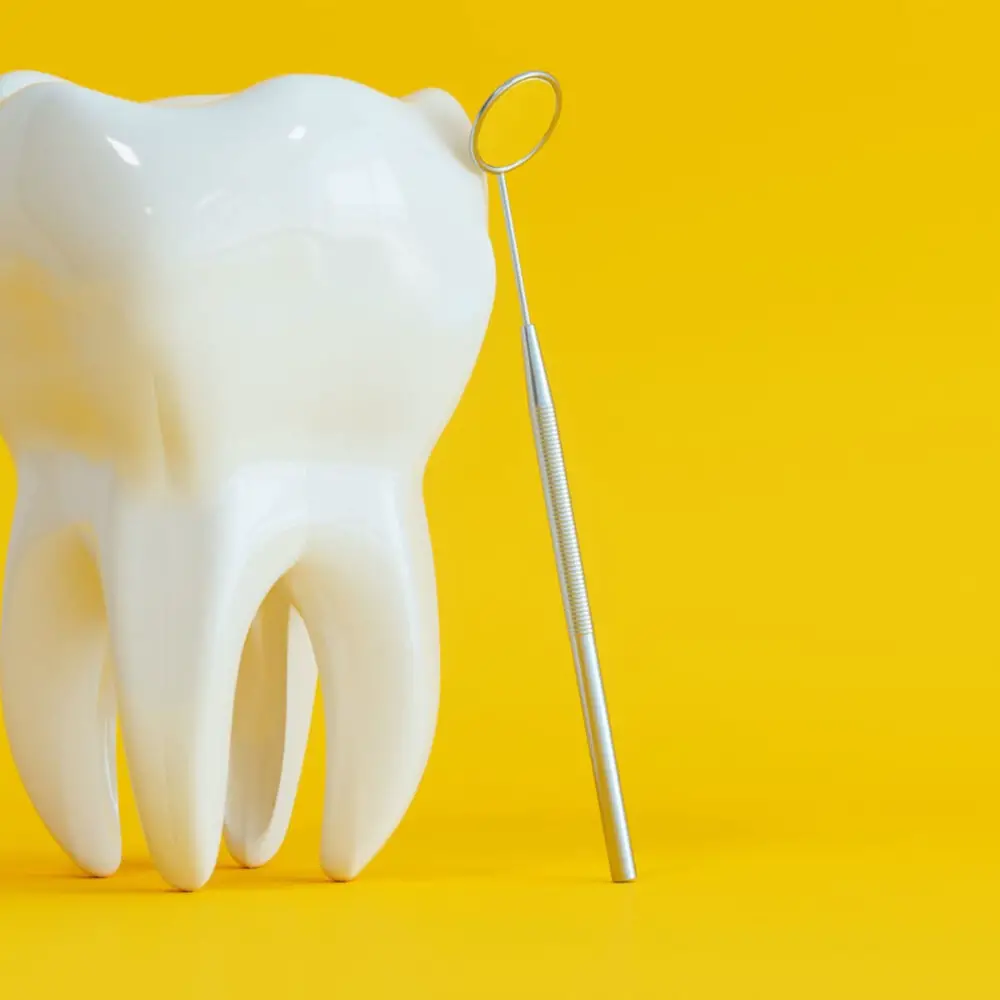
Bruxism is a condition where an individual grinds or clenches their teeth, often unconsciously, usually during sleep. It can cause a range of symptoms, such as jaw pain, headaches, and cracked or worn teeth. Bruxism can be caused by stress, anxiety, sleep disorders, or misaligned teeth. Treatment options include mouthguards, stress reduction techniques, and dental correction. If left untreated, bruxism can lead to serious dental problems, such as tooth loss, gum recession, and temporomandibular joint (TMJ) disorder. It can also cause chronic pain and discomfort, affecting an individual’s quality of life. If you suspect you may have bruxism, it is important to consult with a dentist or medical professional to determine the best course of treatment. With proper care and management, individuals with bruxism can minimize their symptoms and prevent further damage to their teeth and jaw.
Bruxism is a condition characterized by teeth grinding or clenching, typically during sleep. It can result in a range of symptoms including jaw pain, headaches, tooth sensitivity, and even tooth fractures. The causes of bruxism can vary, including stress, anxiety, or misaligned teeth. In some cases, it can be a side effect of certain medications or medical conditions. Bruxism can be treated through a variety of methods, including the use of mouthguards, stress reduction techniques, and in severe cases, dental interventions such as orthodontic treatment or restorative procedures.
Bruxism, commonly known as teeth grinding, is a condition that affects many individuals. There are various causes of bruxism, ranging from psychological factors such as stress, anxiety, and depression to physical factors like misaligned teeth, sleep disorders, and medication usage. Additionally, lifestyle choices such as consuming caffeine, alcohol, and tobacco products may also contribute to bruxism. Other underlying medical conditions like Parkinson’s disease and gastroesophageal reflux disease (GERD) may also cause bruxism. The constant grinding and clenching of teeth can lead to dental problems, jaw pain, headaches, and even sleep disturbances. Therefore, it is essential to identify the root cause of bruxism and seek appropriate treatment to alleviate the symptoms and prevent further damage.
Bruxism, also known as teeth grinding, is a condition where an individual clenches and grinds their teeth, often unconsciously. This habit exerts excessive pressure on the teeth, leading to various dental problems. One of the most common effects of bruxism on teeth is tooth wear. The constant grinding wears down the enamel, making the teeth more prone to chipping and cracking. Bruxism can also cause tooth sensitivity, as the enamel wears away, exposing the sensitive inner layers of the tooth. Additionally, bruxism can lead to jaw pain, headaches, and earaches due to the strain on the temporomandibular joint (TMJ). If left untreated, bruxism can cause long-term damage to the teeth and jaw, making it essential to seek treatment as soon as possible.
Bruxism, or teeth grinding, can cause discomfort and damage to the teeth and jaw. Treatment options for bruxism depend on the severity of the condition. For mild cases, stress reduction techniques, such as meditation or yoga, can be helpful. Mouthguards or splints can be prescribed by a dentist for moderate to severe cases. These devices help protect teeth from grinding and alleviate jaw pain. In some cases, muscle relaxants or Botox injections may be recommended to reduce muscle tension in the jaw. It is important to seek treatment for bruxism to prevent further damage to the teeth and jaw.
Jaw Problems
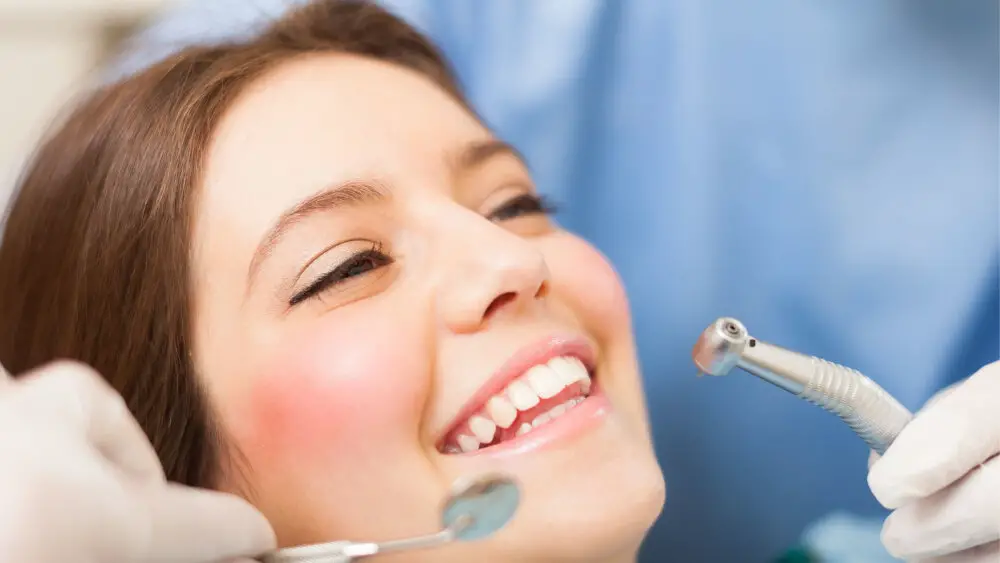
Jaw problems can cause a variety of unusual sensations, including discomfort, pain, and clicking or popping sounds. These issues can be caused by a range of factors, including injury, misalignment, or bruxism (grinding or clenching of the teeth). Patients may also experience headaches, earaches, or difficulty opening their mouths. In some cases, jaw problems can lead to problems with the teeth, gums, and other oral structures. Fortunately, there are a variety of treatments available for jaw problems, depending on the underlying cause. Some patients may benefit from exercises to strengthen their jaw muscles, while others may need surgery or orthodontic treatment. Night guards can also be helpful for patients who grind or clench their teeth while sleeping. If you are experiencing unusual sensations when you bite down or are having difficulty opening your mouth, it is important to see a dentist or doctor as soon as possible to determine the cause and receive appropriate treatment.
Jaw problems refer to any discomfort or difficulties that affect the jaw muscles, joints, or teeth. These problems can arise from a variety of causes, such as trauma to the face, misaligned teeth or jaws, or chronic teeth grinding. They can manifest as a range of symptoms, including pain or tenderness in the jaw joint, difficulty opening and closing the mouth, clicking or popping sounds when moving the jaw, and unusual sensations in the teeth when biting down. Jaw problems can have a significant impact on a person’s quality of life, making it difficult to eat, speak, or even sleep comfortably. Treatment options may include medications, physical therapy, or corrective dental procedures, depending on the underlying cause of the problem.
Jaw problems can be caused by a variety of factors, ranging from physical injuries to medical conditions. One of the most common causes of jaw problems is temporomandibular joint disorder (TMJ), which occurs when the joint that connects the jawbone to the skull becomes inflamed or damaged. Other causes of jaw problems include teeth grinding, which can wear down the teeth and cause pain in the jaw, as well as misaligned teeth or a misaligned bite. Trauma to the jaw, such as a fracture or dislocation, can also lead to jaw problems. Additionally, certain medical conditions, such as arthritis or autoimmune diseases, can affect the jaw and cause pain or discomfort. Overall, it is important to seek medical attention if you experience any unusual sensations in your jaw or teeth, as early intervention can help prevent more serious problems from developing.
Jaw problems can have a significant impact on the teeth, leading to a range of unusual sensations that can be uncomfortable and even painful. When the jaw is misaligned or tense, it can put pressure on the teeth, causing them to shift or become loose. This can result in a range of sensations, such as sensitivity, tingling, or a feeling of pressure or tightness in the teeth. Additionally, jaw problems can cause bruxism (teeth grinding), which can wear down the enamel and lead to cracks or chips in the teeth. Overall, it is important to address jaw problems in order to prevent damage to the teeth and alleviate any discomfort or pain.
There are several treatment options available for jaw problems, depending on the underlying cause and severity of the condition. For mild cases, self-care measures such as applying warm compresses, avoiding hard or chewy foods, and practicing relaxation techniques may be helpful. However, more severe cases may require medical intervention, such as dental or orthodontic treatment, physical therapy, or medication. In some instances, surgery may be necessary to correct structural abnormalities or alleviate chronic pain. It is important to consult with a healthcare professional to determine the most appropriate course of treatment for your specific jaw problem.
Nerve Damage
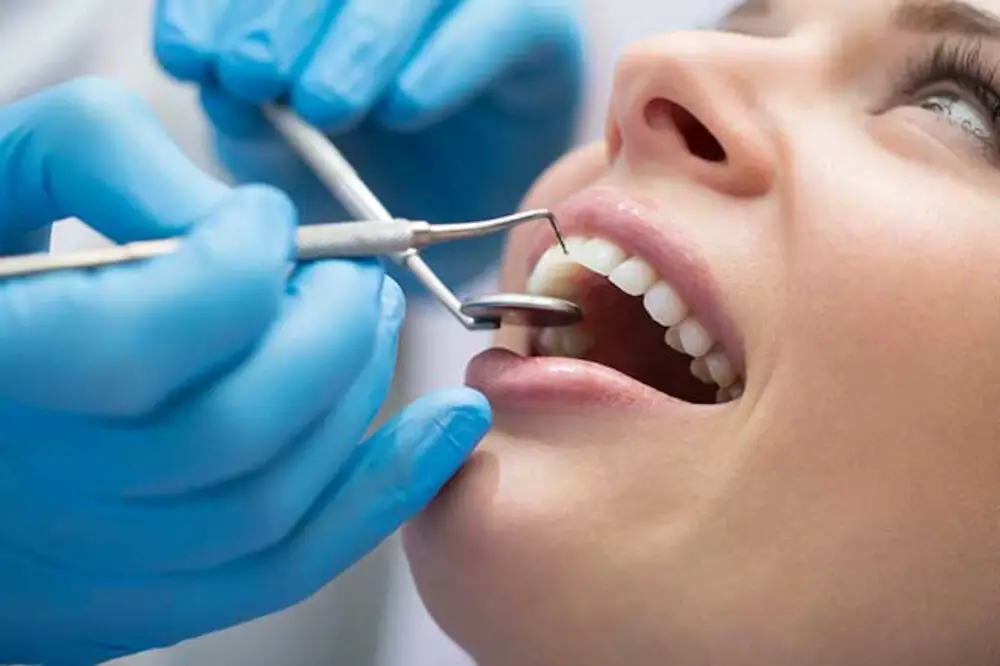
Nerve damage is a condition that occurs when the nerves in the body are damaged, leading to various symptoms such as numbness, tingling, and pain. In the case of unusual sensations in the teeth, nerve damage may occur due to several reasons, including trauma, infection, or underlying medical conditions such as diabetes. When the nerves in the teeth are damaged, the perception of pain and temperature may be altered, leading to a sensation of discomfort or weirdness when biting down. The severity of nerve damage can vary depending on the underlying cause and the extent of the damage. In some cases, nerve damage may be temporary and can be resolved with proper treatment, while in other cases, it may be permanent and require ongoing management. Treatment options for nerve damage may include medication, physical therapy, or surgery, depending on the underlying cause and severity of the condition. It is essential to seek medical attention if you experience unusual sensations in your teeth or other parts of your body, as early detection and treatment can help prevent further damage and improve overall health and well-being.
Nerve damage refers to the injury or impairment of the nervous system that can affect the ability of neurons to transmit messages to the brain and other parts of the body. Damage to the nerves can be caused by a variety of factors such as trauma, infections, exposure to toxins, or chronic conditions such as diabetes. Symptoms of nerve damage can vary from mild numbness and tingling to severe pain and loss of motor function. It is important to seek medical attention if you suspect nerve damage as early diagnosis and treatment can prevent further damage and improve outcomes.
Nerve damage can occur due to a variety of reasons, and it can manifest itself in unusual sensations such as tingling, numbness, or pain. The most common causes of nerve damage include physical injury, infections, and conditions that affect the nervous system such as multiple sclerosis or diabetes. Certain medications or toxins may also cause nerve damage. In some cases, nerve damage may be caused by lifestyle factors such as poor nutrition, excessive alcohol consumption, or smoking. It is important to identify the underlying cause of nerve damage in order to prevent further damage and improve symptoms.
Nerve damage can have significant effects on the teeth, leading to a range of unusual sensations. When the nerves that supply sensation to the teeth are damaged, it can cause a variety of abnormal sensations, such as tingling, numbness, or pain. These sensations may be constant or intermittent and can significantly impact a person’s ability to bite down or chew properly. In some cases, nerve damage can also lead to tooth sensitivity or even tooth loss. Therefore, it is essential to seek prompt treatment if you experience any unusual sensations in your teeth, as early intervention can help prevent further damage and preserve your dental health.
Treatment options for nerve damage depend on the severity and cause of the damage. Mild cases may only require rest and time for the nerve to heal itself, while more severe cases may require surgery or medication. Physical therapy, massage, and acupuncture have all been shown to improve nerve function and reduce pain. Additionally, lifestyle changes such as maintaining a healthy weight, quitting smoking, and managing stress can also improve nerve health. In cases where the nerve damage is caused by an underlying condition such as diabetes or multiple sclerosis, managing the condition is essential to prevent further damage. Early diagnosis and treatment of nerve damage are crucial to prevent irreversible damage and improve overall quality of life.
Unusual sensations in teeth can be caused by a variety of factors. Tooth decay and cavities can cause sensitivity to hot or cold temperatures, as well as pain and discomfort when biting down. Gum disease and recession can also cause sensitivity and discomfort, particularly when the roots of the teeth are exposed. Grinding or clenching teeth, often due to stress, can cause wear and tear on the teeth, leading to sensitivity and pain. Additionally, dental procedures such as fillings, crowns, and root canals can cause temporary sensitivity and discomfort. It is important to see a dentist if you experience any unusual sensations in your teeth, as they can help identify the underlying cause and provide appropriate treatment.
Experiencing unusual sensations in teeth can be a sign of an underlying dental problem that needs immediate attention. Ignoring these sensations can worsen the problem, leading to severe pain and discomfort. Seeking professional help from a dental expert can help identify the root cause of the problem and provide appropriate treatment. Dental professionals have the expertise and tools needed to diagnose and treat dental problems, including cavities, gum disease, and tooth decay. Additionally, they can provide advice on proper oral hygiene practices to prevent dental problems in the future. It is essential to prioritize dental health and seek professional help if experiencing any unusual sensations in teeth to maintain a healthy smile and overall wellbeing.
Conclusion
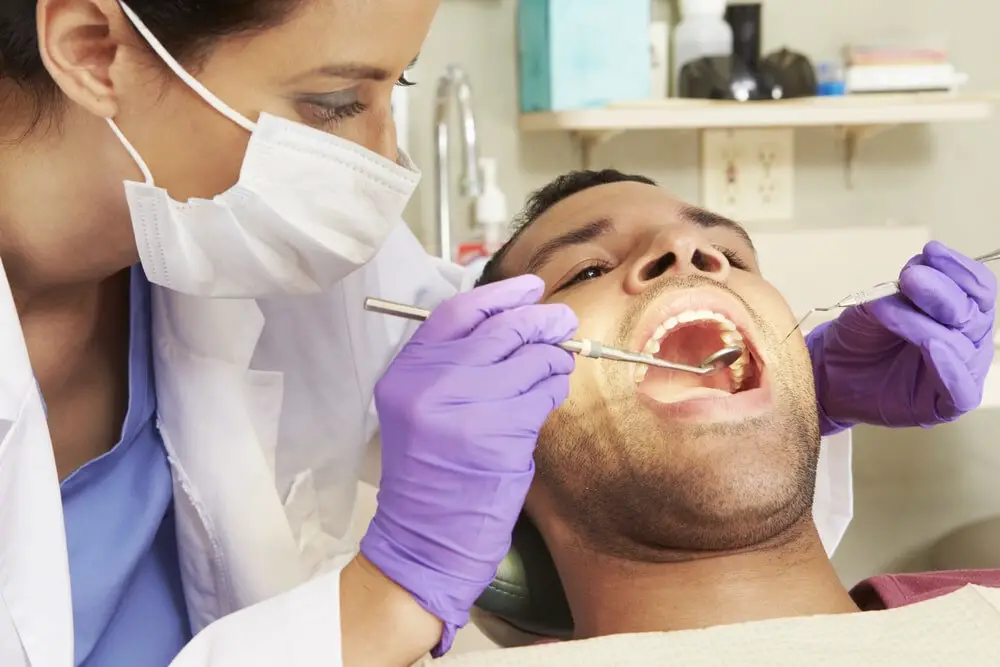
In conclusion, it can be said that unusual sensations in our teeth while biting down can be a cause for concern and may indicate underlying dental problems. It is important to pay attention to these sensations and seek professional dental advice if they persist. Proper dental hygiene and regular check-ups can prevent many dental issues and help maintain healthy teeth and gums. Neglecting dental care can result in discomfort, pain, and even tooth loss. So, let’s take care of our teeth and keep them healthy and strong!
